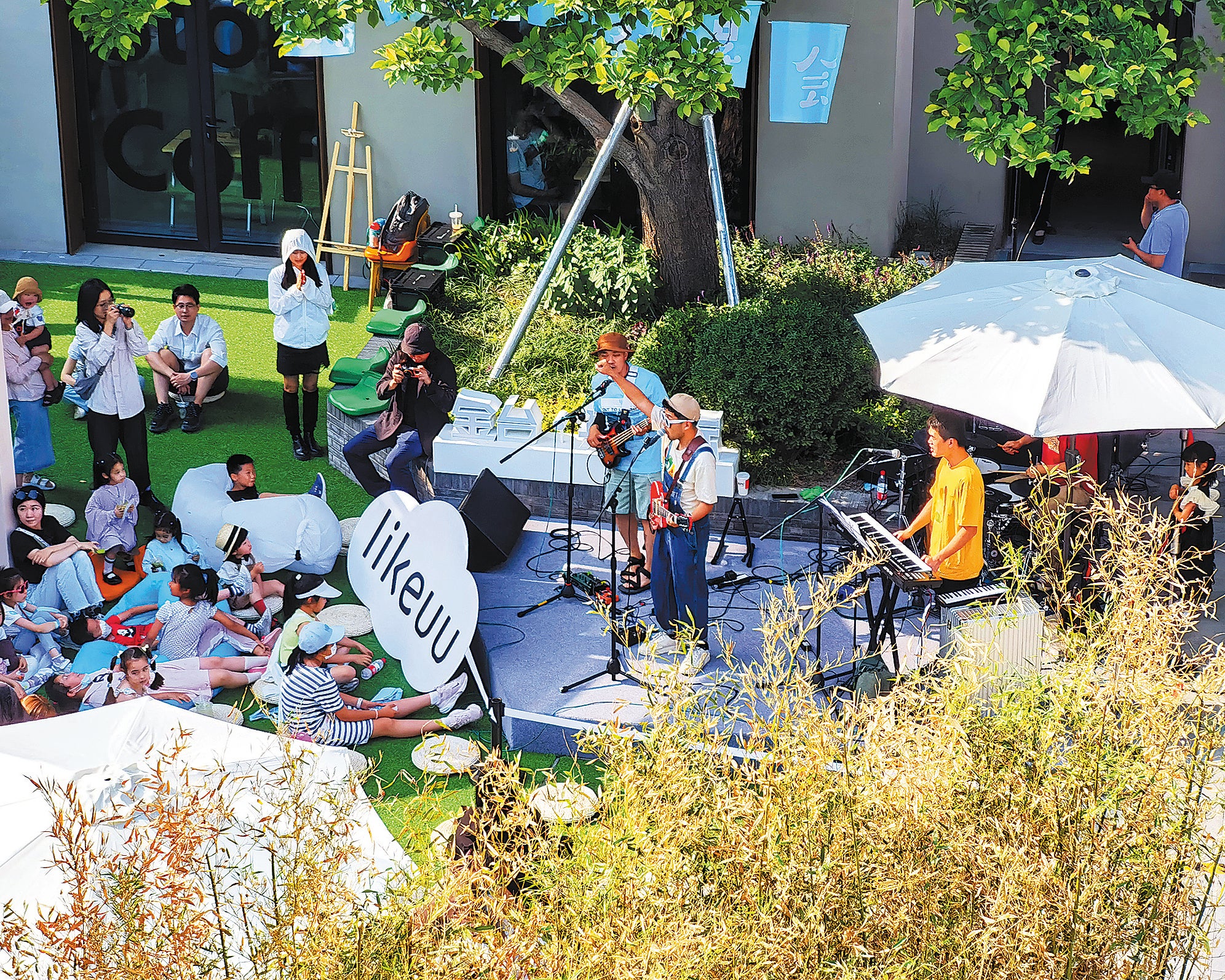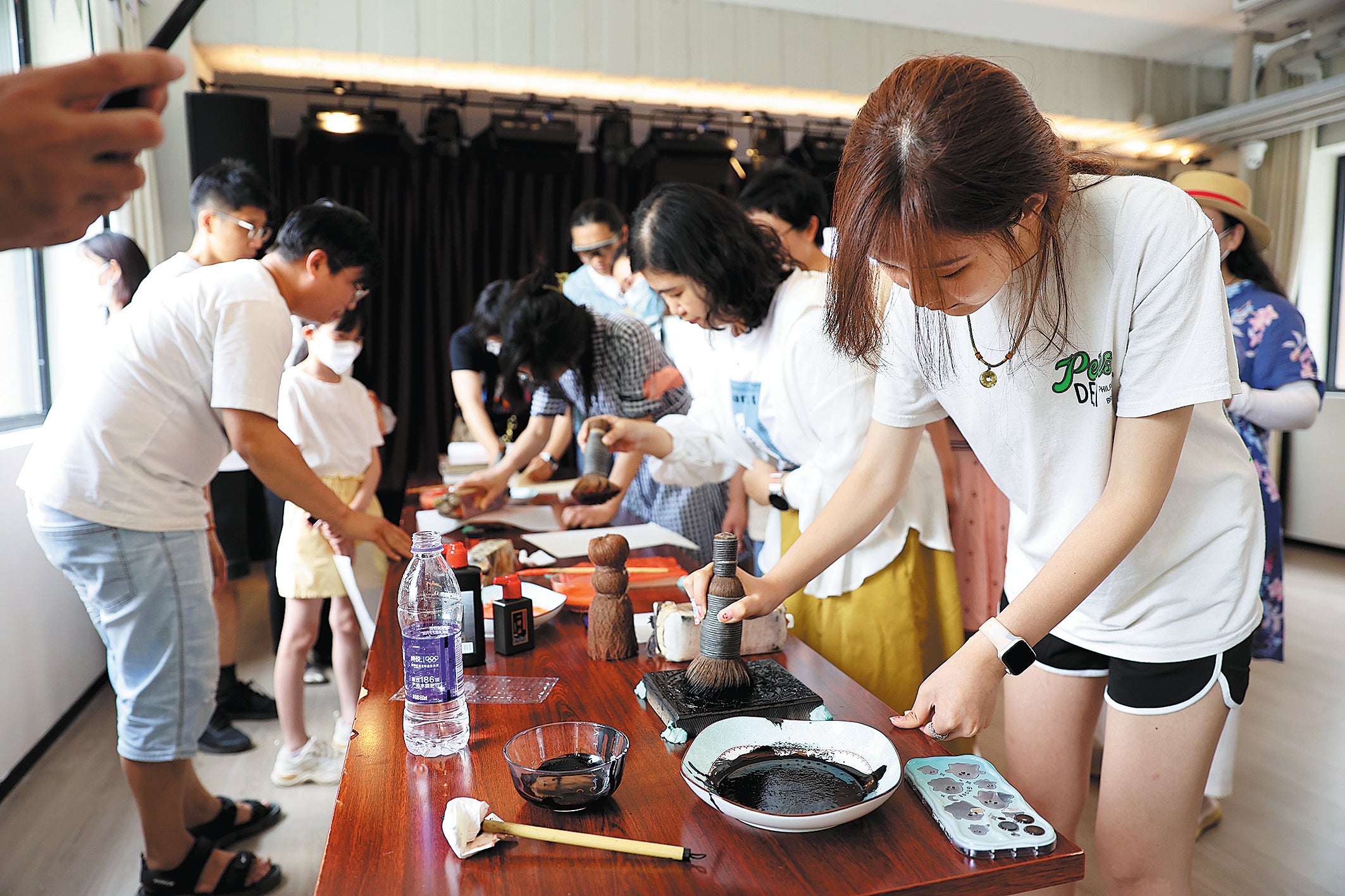Young people find their calling at cultural park
THE ARTICLES ON THESE PAGES ARE PRODUCED BY CHINA DAILY, WHICH TAKES SOLE RESPONSIBILITY FOR THE CONTENTS

Yin Yue is living her dream, as the small bar and restaurant she recently opened in a hutong, or alleyway, in Beijing is attracting customers from the Chinese capital and many other areas of the country.
“I named the restaurant Folie, the French word for madness,” said Yin, who is in her 20s.
The bar at the eatery features Chinese and Western elements, such as the hutong setting and clips from the popular United States television series Friends.
Yin believes that this mixed cultural atmosphere caters to the tastes of young Chinese consumers.
“When I was looking for a suitable location for the business, I set my sights on an area deep in a hutong, and made a point of highlighting hutong culture at the restaurant,” she said.
The menu includes distinctive hutong snacks such as dumplings with mixed sesame and peanut butter, and fried pork intestines.
“I grew up eating these delicious snacks,” said Yin, who was born and raised in Beijing.
To ensure the success of her business, Yin spent a year preparing to launch the restaurant after completing law studies at Renmin University of China last year.
As Yin was choosing the site for the restaurant earlier this year, the soon-to-open Jintai 5Lmeet Cultural Industrial Park began receiving visitors in the city’s Dongcheng district in March. The 5L of the title stands for livable, linked, liberal, lively and landscaped, and Yin’s restaurant is situated in the park.

Located north of the ancient Bell and Drum towers next to Beijing’s Central Axis, the park covers about 43,000 square feet. It was built on the site where a group of technology experts from Shanghai used to work in the 1950s.
A magnolia tree more than 100 years old stands in the courtyard at the site, offering welcome shade in summer. Trendy shops offering cultural creative items, artworks, coffee and catering services surround the courtyard.
The idea is for visitors to this old hutong area in present-day Beijing to observe the traditions of a bell being rung at dawn and a drum being beaten at dusk. This environment enticed Yin to set up her business in the park.
Her business has won the hearts of numerous customers, with the restaurant usually fully booked during weekends.
“My customers usually visit the restaurant after work to enjoy food and chat with their friends,” Yin said. “Most of them are young women, who can identify with the items I put up at the business.”
Yin is just one of several young people who have found their calling at the cultural park. Cui Zhenshuo and one of his friends have opened a shop in the park that sells handmade paper.
When administrative officials from the park saw one of Cui’s paper exhibitions in Beijing, they offered him the chance to open a business there, which Cui readily accepted.
“My business partner and I both grew up in Beijing, and we are into the hutong atmosphere,” said Cui, who believes the traditional setting can help his small shop serve as “something of a museum” for visitors.
The business displays more than 500 types of paper that he and his team have collected from different parts of the country.
“We want more people to realise that our country has preserved a rich variety of paper, and many craftsmen are still committing themselves to this inheritance,” said Cui, who is in his 30s. “More importantly, this paper represents the diverse cultures of various regions and ethnicities across the nation,” Cui said.
In particular, customers appreciate Dian paper from Yunnan province. “It’s made from the bark of local plants in the ethnic mountainous area, and the surface of this paper has a kind of glossiness, which looks extremely beautiful in sunlight,” Cui said.
In addition to running his shop, Cui interacts with other business owners at the park. “We are all pretty close in age, we speak the same language, and life here is full of vitality,” he said. Cui feels that as the park develops, it will attract more visitors.
